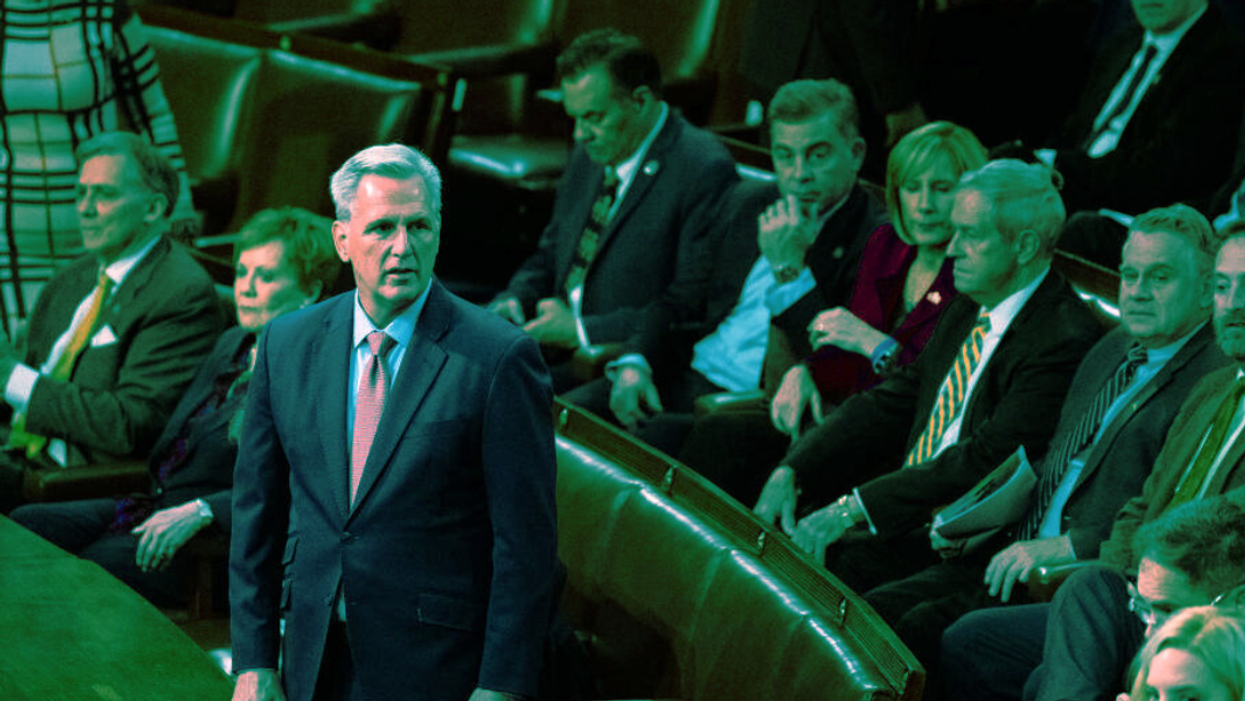Ali Noorani is the Program Director of U.S. Democracy at the William and Flora Hewlett Foundation. He leads the investments to strengthen democracy through our Trustworthy Elections and National Governing Institutions grantmaking.
Kevin McCarthy’s 15-ballot journey to the U.S. House speakership in January of 2023 was, to some, a testament to political coalition building. This subset of political punditry believed the many concessions McCarthy made to far-right lawmakers was the way one needed to manage today’s political factions. Others, in fact, thought the far left should play the same brand of hardball and exact their own set of ruthless concessions next time there was an election for a Democratic speaker.
Yet, in spite of McCarthy’s machinations, some 269 days later, eight members of the Republican conference, representing 1.8% of the nation, broke with their party to oust him from the speakership. Through his painful coalition building, McCarthy believed he had found a space where disagreement led to compromise. Instead, his willingness to look for common ground gave license to conflict entrepreneurs who only became more extreme and eventually brought down the House.
The result is that our nation is lurching toward another government shutdown, risking programs, services, and support of Ukraine’s fight against an authoritarian invasion, further eroding trust in our democratic institutions. Laura Blessing, a senior fellow at the Government Affairs Institute at Georgetown University, told The Washington Post, “We are watching a very small number of folks from the House Republican conference have an outsize role in promoting a lot of congressional dysfunction and fiscal dysfunction. This is a move for volatility and not a move to pass legislation.”
Why did we get here?
Over the last couple of decades, political actors have spent billions of dollars to deepen polarization within our society. As a result, our differences have shifted from ideological splits to what Lilliana Mason accurately describes as, “an emotional type of polarization that cannot be explained by parties or issues alone.”
A major contributor to the affective polarization that dominates our politics and defines our tribes has been the way in which religious, racial, and other social identities are increasingly linked to one party or the other. Mason explains that with identity-based politics, “the passion and prejudice with which we approach politics is driven not only by what we think, but also powerfully by who we think we are.” The upshot, she concludes, is that “the ‘otherness’ of ideological opponents, more than issue-based disagreement, drives liberal-versus-conservative rancor.”
This all leads to a level of tribalism that creates the political space and incentive structure for a fringe group to exert an outsized influence. It plays into the othering of ideological opponents in ways that intersect with religious, racial, and other social identities — and prevents the political compromises that are necessary for governing the diverse, messy realities of a country with 330 million individuals.
Where do we go from here?
In “ High Conflict: Why We Get Trapped and How We Get Out, ” Amanda Ripley describes this dynamic as one where conflict entrepreneurs weaponize identity politics and tribalism to garner media attention and votes in order to amass political power. The solution she posits is to find “conflict disruptors,” those whose identities are still broad enough to bring together different sides of a debate. Encouraging politicians and citizens alike to reject the narrow parts of their identities on display in party politics is a challenge, but it starts with recognizing that finding narrow zones of compromise is the only way for our democracy to function.
To begin, we need to establish incentives for political moderation that do not require one to change their party identity. From the groundbreaking work of One America Movement with a range of faith communities or the painstaking efforts of Care Lab to build relationships among key staff on Capitol Hill, we know this will not happen quickly and success will rely on a combination of structural and cultural factors.
It remains to be seen whether any Republican can win the speakership and wield the gavel in ways that disrupt conflict and recognize a shared political community. What they concede, to whom, in order to earn 218 votes will determine their approach to leadership. But this is not just a Republican problem. If our politicians continue their march toward performative, high conflict, more and more of our fellow Americans will find extremism increasingly appealing — and, in the worst case, an onramp to political violence. If our new House Speaker can manage small steps back from high conflict, we have a chance of once again feeling like we are part of a shared political community. There is a lot at stake for all of us, regardless of which tribe we consider our own.
This piece was original published by the William and Flora Hewlett Foundation




















